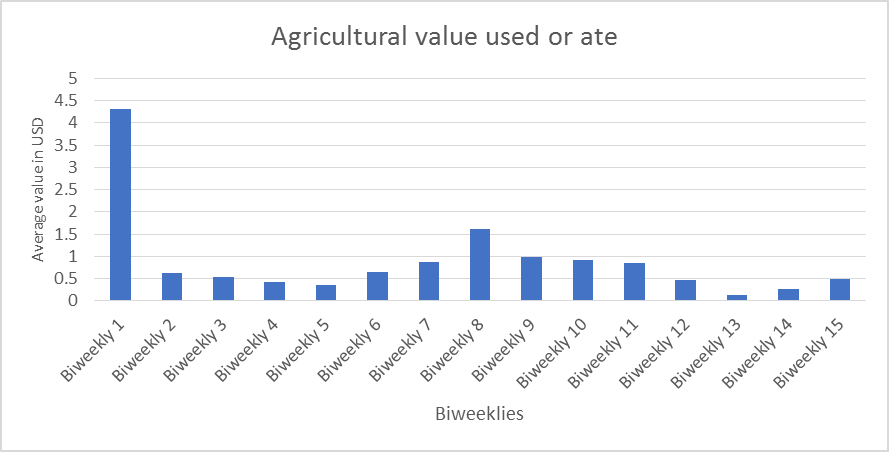In the previous two articles (Lives vs Livelihood: Refugees in Uganda – Part 1 and Part 2), we discussed the effect of the lock-down on business and employment. This article will be about agricultural activities and whether there have been any impacts by the lock-down.
Agricultural activities include crop agriculture, horticulture, and livestock. According to the baseline, 63 percent of the respondents have some type of agriculture. Out of those who had some type of agriculture, most of it is for their own consumption (56 percent: crop-agriculture for own consumption; 22 percent: horticulture for own consumption, and 7.3 percent: livestock for own consumption). Fewer respondents indicated they had crop agriculture for sales (10.95 percent), horticulture for sales (6.08 percent), and livestock for sales (4.87 percent).
Interestingly, agricultural sales from all types of agricultural activities have increased in the last biweekly interview. This shows an increased demand for agricultural products during this lockdown.
As the respondents clearly had agricultural crops to sell, you might expect them to also consume more value from their own crops. After all, in difficult times you may wish to save on buying food. However, such an increase in own subsistence crops was not observed. This may change if the lock-down continues for a longer period of time.
Overall, refugees that are engaged in agricultural activities might turn out to be in a better situation in the Covid-19 crisis than those without agriculture. Producing your own food rather than buying it from business or employment income, may give you extra resilience.
By: Mahlet Alemayehu
This blog is written using data from the RISE project, funded by Opportunity International, with consulting services from PHB.
PHB collaborates with international development agencies, banks, regulators, and other impact makers around the world to assess, implement and scale digital interventions. We leverage the expertise of our team to support the design of digital finance ecosystems that can strengthen the resilience of communities in need. To learn more about PHB activities, publications and training, visit www.phbdevelopment.com




